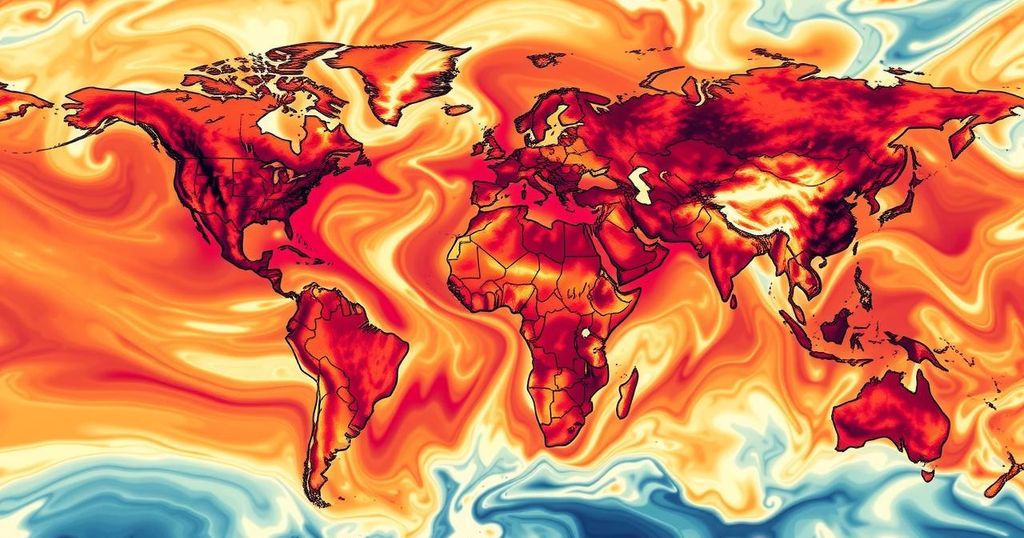2024 Marks Record Global Temperature Increase: A Warning for Humanity

The year 2024 became the hottest recorded since 1850, with global temperatures hitting 1.6 degrees Celsius above preindustrial levels. This temperature increase has intensified natural disasters globally, including catastrophic wildfires in Los Angeles. The Copernicus Climate Change Service linked these trends to human-induced carbon emissions, emphasizing the urgent need for climate action as every year from 2015 to 2024 ranks among the ten warmest years in history.
In 2024, global temperatures exceeded preindustrial levels by 1.6 degrees Celsius, marking the hottest year recorded since 1850. This alarming increase has shattered previous expectations and underscores the urgent need for action on climate change. A report from the EU’s Copernicus Climate Change Service confirmed that the global average temperature reached 15.10 degrees Celsius, or 59.18 degrees Fahrenheit, significantly exacerbating the frequency and severity of natural disasters worldwide, including devastating wildfires in Los Angeles that resulted in considerable loss of life and property.
The report highlights a concerning trend, noting that every year from 2015 to 2024 ranks among the ten warmest in recorded history. Furthermore, July 22, 2024, witnessed a record daily global average temperature of 17.16 degrees Celsius. The scientists attributed the ongoing climate crisis to anthropogenic factors, particularly the heightened carbon emissions resulting from fossil fuel combustion. The increased energy usage, particularly from home consumption and the demands of artificial intelligence technology, has complicated efforts to transition away from fossil fuels.
Samantha Burgess, the strategic lead for climate at the European Centre for Medium-Range Weather Forecasts, emphasized the link between elevated temperatures and extreme weather events. “These high global temperatures, coupled with record global atmospheric water vapour levels in 2024, meant unprecedented heatwaves and heavy rainfall events, causing misery for millions of people,” she stated.
This newfound data serves as a grave reminder of humanity’s impact on the environment and the critical need for global cooperation and innovative solutions to reverse these unsettling trends. The ongoing climate-related disasters pose a threat to millions and necessitate immediate action from leaders globally to mitigate further temperature increases and protect vulnerable communities.
In recent years, climate change has emerged as one of the most pressing challenges faced by humanity. Scientific consensus underscores that human activity, particularly through the emission of greenhouse gases, is the primary driver of the rapid warming of the planet. Global average temperatures have been rising consistently, with significant consequences for weather patterns and natural disasters worldwide. The 2024 increase of 1.6 degrees Celsius above preindustrial levels is particularly alarming within the context of international climate goals, which aim to limit global warming to 1.5 degrees Celsius by 2100. The implications of this surpassed threshold are profound, leading to intensified weather events and exacerbating existing vulnerabilities in many regions.
In conclusion, the remarkable rise in global temperatures, particularly in 2024, serves as a warning of the direct consequences of climate change exacerbated by human activities. The findings from the Copernicus Climate Change Service not only highlight the record temperatures but also illuminate the direct correlations between rising temperatures and climatic disasters. Coordinated global efforts are imperative to address these challenges and safeguard the environment for future generations.
Original Source: www.cnet.com







